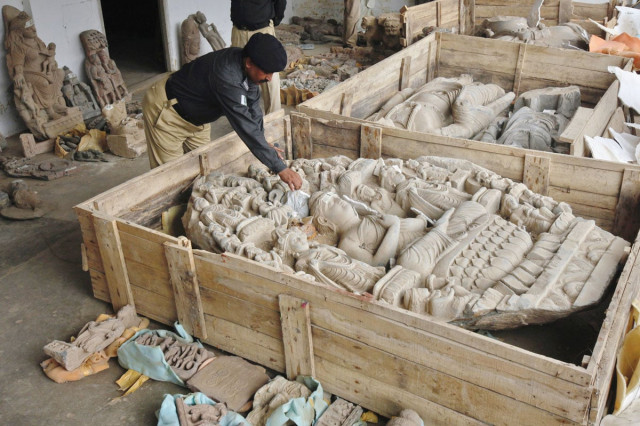Stolen artefacts
Apart from recovering lost artefacts, we still need to do a lot more to appreciate the value of our past.

Needless to say, thanks to this tussle, many of the pieces have now been stolen and are no longer around to be claimed by either. This question of ownership should, at best, have been a secondary one with the primary duty of both governments being that the pieces are kept safe and publicly displayed at museums for the benefit of citizens. Such artefacts belong to the entire country and now that the police have finally decided to become serious about keeping smuggling in check, we shouldn’t be reliant on our self-interested government to allow us to appreciate our heritage. Even though we don’t have a culture of setting up and maintaining museums, it is high time we now do so to properly display our heritage. Not only will it be of educational value to citizens, it can also boost tourism and bring foreign researchers to the country.
Apart from recovering these lost items, we still need to do a lot more to appreciate the value of our past. The rare fossils that were destroyed by the military raid that killed Akbar Bugti barely merited a footnote in all the news coverage of the event. And the fact that so much of our heritage is now in India means that we show it scant attention. Heritage, however, transcends present-day borders and we should work with India to facilitate the display of our joint heritage in both countries. It is the least the government can do to educate its citizens.
Published in The Express Tribune, July 23rd, 2012.















COMMENTS
Comments are moderated and generally will be posted if they are on-topic and not abusive.
For more information, please see our Comments FAQ